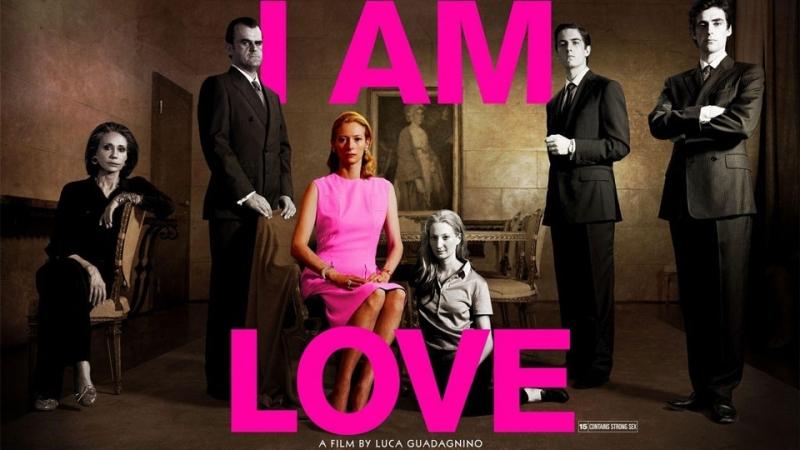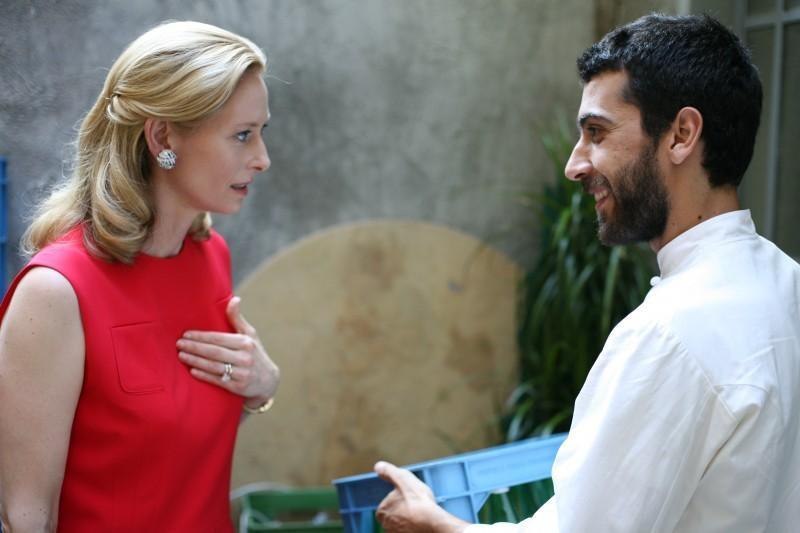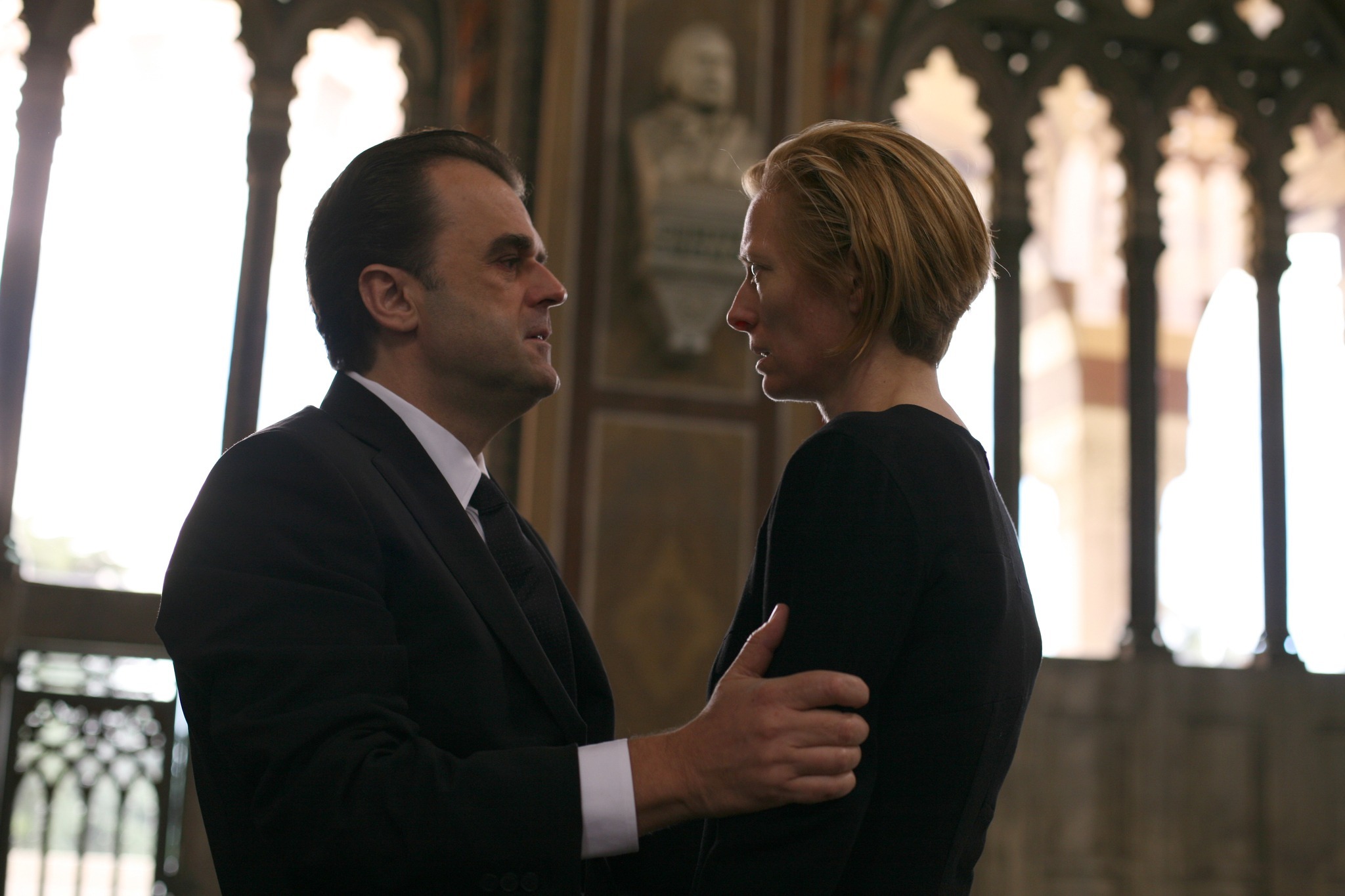I Am Love (2009)

I Am Love is a 2009 Italian romantic drama film directed by Luca Guadagnino, set in Milan in the early 2000s. The film stars Tilda Swinton as Emma Recchi, a woman married to a wealthy industrialist, whose life takes an unexpected turn when she embarks on an affair with a young chef. Through its rich cinematography, powerful performances, and exploration of identity and desire, I Am Love becomes a poignant and visually stunning examination of passion, family, and the pursuit of personal freedom.
The story centers around Emma Recchi, a Russian-born woman who has become the wife of Tancredi Recchi, a powerful and influential figure in Milan’s elite industrial society. On the surface, Emma seems to lead a perfect life—rich, respected, and part of a prominent family. However, beneath this exterior, she is trapped in a life of social expectations, emotional restraint, and unfulfilled desires. Her life changes dramatically when she begins an affair with Antonio, a young chef played by Edoardo Gabbriellini, who works in the family’s restaurant.
One of the most striking aspects of I Am Love is its portrayal of Emma’s emotional and sexual awakening. As she embarks on her passionate relationship with Antonio, she begins to question the life she has built and her role within the wealthy, controlling Recchi family. The affair is a catalyst for Emma’s personal transformation, allowing her to rediscover her own desires and confront the limitations imposed upon her by her marriage and societal expectations. Through this journey, the film explores themes of personal freedom, guilt, and the struggle to reconcile one’s desires with the responsibilities of family and social status.

Tilda Swinton’s performance as Emma is nothing short of mesmerizing. She brings a quiet intensity to the character, skillfully conveying the internal conflict and emotional complexity of a woman who has spent years suppressing her true self. Swinton’s ability to express profound emotion with minimal dialogue makes her portrayal of Emma both heartbreaking and compelling. Her elegance and restraint in the first half of the film contrast sharply with her passionate outbursts later on, reflecting Emma’s journey from repression to liberation.

The film’s visual style also plays a significant role in its storytelling. Guadagnino and cinematographer Yorick Le Saux use color, light, and composition to convey the emotional undercurrents of the story. The opulent interiors of the Recchi family home, with their sleek, modern design, create an atmosphere of coldness and emotional distance, reflecting Emma’s initial state of emotional confinement. In contrast, the more intimate, vibrant settings where Emma and Antonio’s affair unfolds—such as the kitchen and the countryside—are filled with warmth and life, symbolizing the awakening of Emma’s desires.

The music of I Am Love further enhances the emotional depth of the film. Composed by John Adams, the score combines classical music with contemporary sounds, heightening the emotional resonance of key moments. The music is sweeping and grand, mirroring the film’s exploration of intense emotions and the tension between societal expectations and personal fulfillment. The combination of visual beauty and a hauntingly evocative score elevates the film from a simple romantic drama to a profound meditation on love, identity, and freedom.
In addition to its focus on Emma’s personal journey, I Am Love also examines the dynamics of the Recchi family. As Emma’s affair progresses, the carefully constructed façade of the Recchi family begins to unravel, revealing the fragility of wealth, power, and tradition. The family’s tensions and conflicts serve as a backdrop to Emma’s transformation, highlighting the contrast between personal desires and the obligations of family loyalty. The film’s final moments emphasize the tragic consequences of Emma’s decisions, underscoring the idea that the pursuit of true happiness is often fraught with sacrifice and loss.

In conclusion, I Am Love is a visually stunning and emotionally powerful film that explores themes of desire, identity, and self-discovery. Through Tilda Swinton’s remarkable performance, Luca Guadagnino’s masterful direction, and a haunting score, the film offers a poignant exploration of the complexities of love and the struggle for personal freedom. It is a film that lingers long after the credits roll, leaving audiences to reflect on the delicate balance between passion, duty, and the choices that define our lives.











